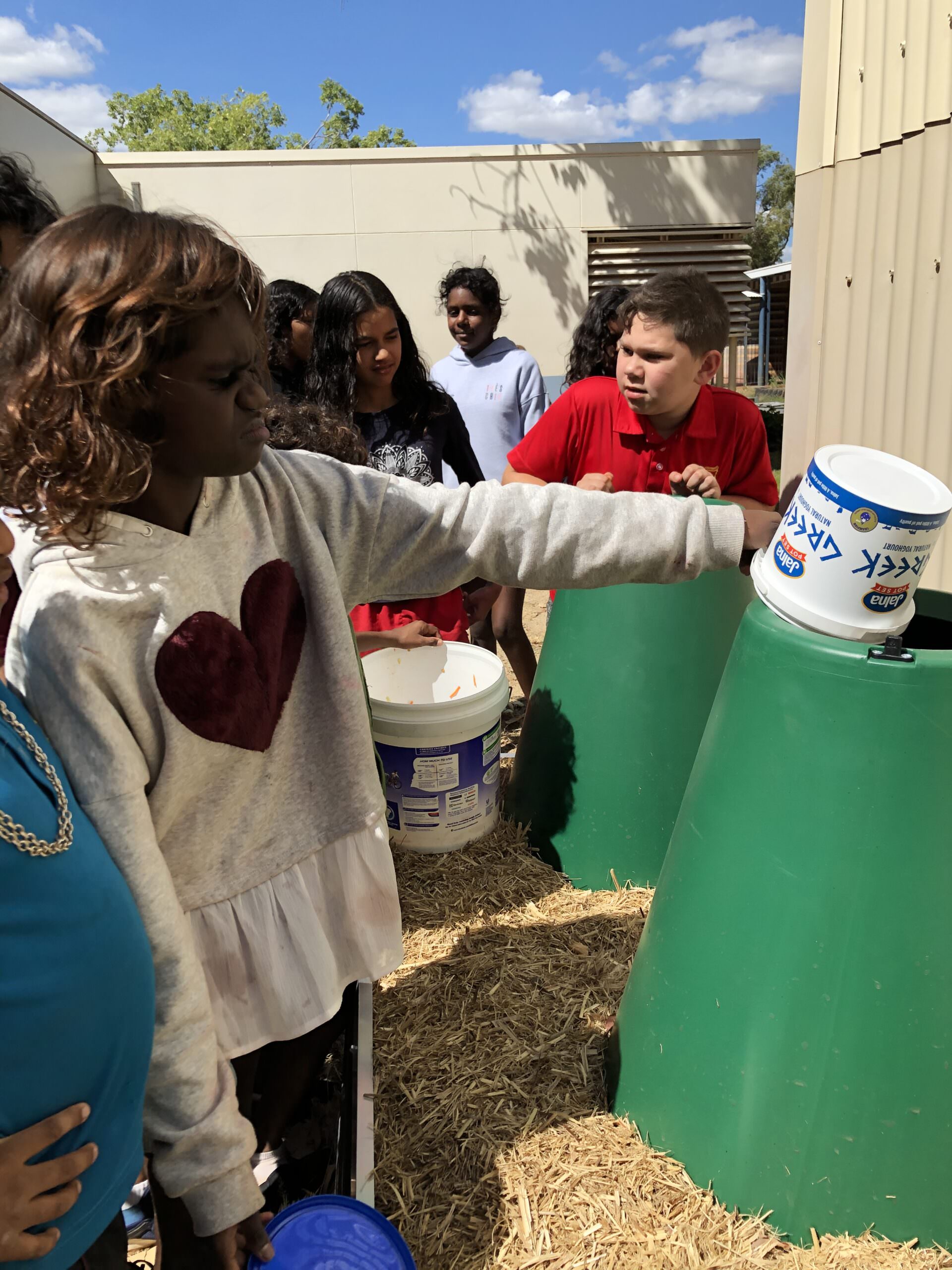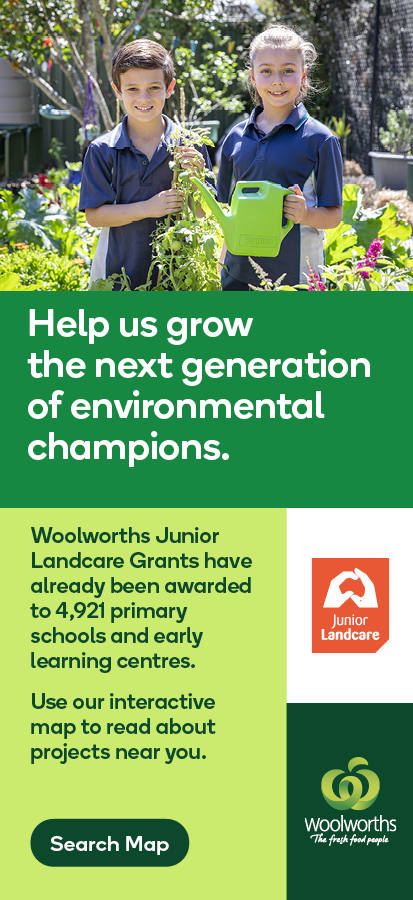CASE STUDY

Age Groups: 7-13
Grant Name:
School: MacFarlane Primary School
Grant Sponsor: Woolworths
Project Overview
MacFarlane Primary School wanted to use compost to help its vegetable garden thrive in a sustainable manner. However, due to the heat of the Northern Territory, composting worm farms are hard to maintain and keep at a consistent temperature.
With some research, the school found digester cones offered an efficient alternative to traditional composting bins. Composters use air, moisture and the layering of different materials to aid decomposition and create nutrient- rich soil as a finished product. Digesters promote decomposition without air.
Funds from a Woolworths Junior Landcare Grant enabled the school to purchase the digestive cones and implement their composting project.
Each day students have a healthy snack of apples and the main composting focus is to use the apples as well as any food scraps to support the digestible cones. Each class has a compost buddy who collects the food scraps and deposits them in the green digester cones.
Environmental and Educational Outcomes
The project helped the students understand about biodiversity of a garden, importantly how to use food waste to improve the soil and how the plants grow better in soil rich in nutrients.
They also learned about the garden ecosystem, including that plants need certain insects to help pollinate them, worms help the soil and insects eat the plants for their food. They also discovered how weeds can invade the garden and take over if not managed.
The garden is an ongoing project and at the end of each harvesting year, students turn over garden beds and prepare the soil for the next year. From now on, at the end of the harvesting season students will be able to use the soil from the digesters to prepare the soil for the next year of planting of new plants.
The use of the Health and Physical Education learning area of the Australian Curriculum gives students opportunities to learn about their strengths and simple actions they can take to keep themselves healthy. The school uses the garden to address the role of food and nutrition in enhancing health and wellbeing. The garden addresses the issues of healthy, informed food choices and exploring the contextual factors that influence eating habits and food choices.
Conclusion
The outcomes of the project have been substantial as it helped save money on fertiliser and students have been able to see the process of food waste being used to help the environment and the plants they planted to grow. Students have seen the whole cycle of food turned into liquid and put back into the soil to aid plant growth.
Mallika Wright, Year 5/6 teacher, says “I thoroughly enjoy being outside with my students in the vegetable garden. Some students, who do not necessarily get into their written work in class, thrive in the garden and are always the most helpful, which is wonderful to see.”
“I see our garden project as a way of making food education accessible to all students. It also exposes our students to the process of seed to plate. We are using the digesters that we purchased with the grant to show students how to turn food waste into a beneficial component in the garden.”
 Teachers & Educators
Teachers & Educators Youth or Community Groups
Youth or Community Groups